Yellowjackets Superfan Elijah Wood Has Theories To Share About His "Odd" Character
by, Yvonne Villarreal April 7. 2023 Los Angeles Times
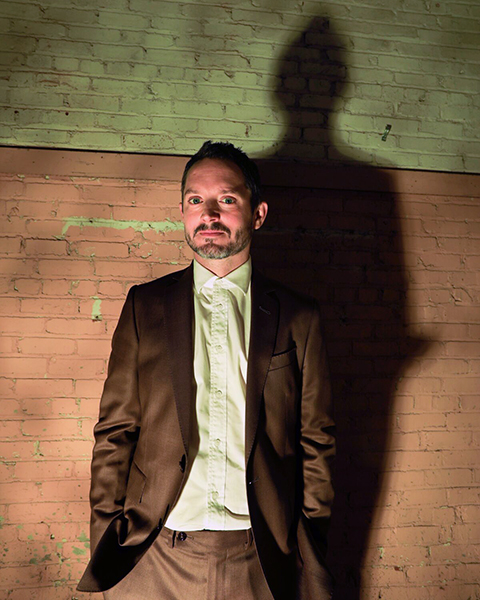
Elijah Wood joins the second season of Showtime’s Yellowjackets photo by Genaro Molina
Is there something Elijah Wood needs to tell us?
When the 42-year-old actor casually mentions he’s in New Zealand, whose bucolic green pastures and mystical mountain ranges were used to portray Middle-earth in the “Lord of the Rings” trilogy, the need to temper expectations is swift.
“No, it’s not like that,” he says with a hearty chuckle. “I am working on a film here. It’s not Tolkien-related.”
More than two decades since the Peter Jackson-directed fantasy trilogy hit the big screen — and decades more since the works of J.R.R. Tolkien on which the films are based began entertaining audiences — it’s remained a headline maker and coveted Hollywood franchise. In addition to Prime Video’s “The Rings of Power,” a series unrelated to the Jackson films and set prior to the events of the novels, Warner Bros. recently announced it was working on new movies set in Middle-earth.
Looking as refreshed and relaxed as one can in a video chat box — the intensity of his famous blue eyes immune to Zoom’s video quality — Wood, who brought beloved hobbit Frodo Baggins to life in the blockbuster fantasy, has been busy portraying another character on a perilous search.
In the second season of Showtime’s “Yellowjackets,” about a high school girls’ soccer team that gets stranded in the wilderness and the present-day lives of the survivors, Wood plays Walter Tattersall, a citizen sleuth whose interest in a missing persons case involving one of the adult Yellowjackets brings him into Misty’s (Christina Ricci) orbit.
During a break from production in New Zealand (more on that later), Wood spoke with The Times about stepping into the “Yellowjackets” world, his nostalgia for the ’90s, and his thoughts on the universe expansion of “The Lord of the Rings.”
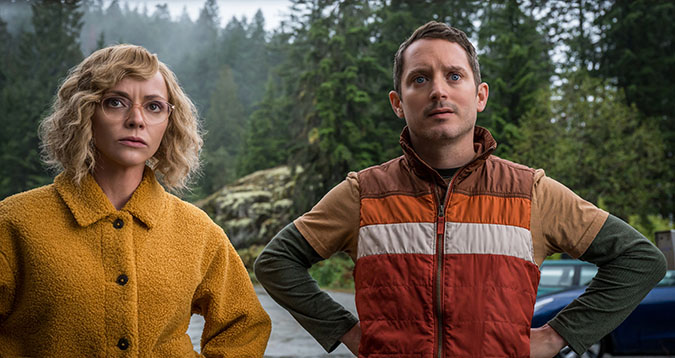
Tell me how the role of Walter found its way to you. What was the pitch from co-creators Ashley Lyle and Bart Nickerson?
I was informed that Ashley and Bart had written a character that they wanted to talk to me about. And I was thrilled because I had seen the first season. I watched it as a viewer, as a fan. I’m friends with Melanie [Lynskey, who plays present-day Shauna] and will watch anything that she does, and I fell in love with the series. It’s the only time in my life that I’ve ever watched a season of a show as a fan and then been asked to participate in a subsequent season.
They pitched this character who is eccentric and odd in a similar way to Misty, but he sort of managed to figure out a way to be more in the world and functional than Misty is. In that way, he’s quite a good counterpoint to her eccentricities, because they kind of complement each other. He was described as a citizen detective that is an enthusiast on this message board about crime and solving crime and that the two of them would kind of go on this investigative journey together. And that was thrilling because I love Christina, and Misty is one of my favorite characters in the show.
How much is included in that overview they gave you? We have to assume there’s more to his story than we know right now. We love to be suspicious; it gives us more theories.
They gave me what felt, at the time, was a relatively comprehensive overview of the character and his arc, but there were plenty of surprises as we were shooting [laughs] — just about his backstory, his financial situation, interests that he has that didn’t come up in that first meeting. He’s a musical fan. He’s obsessed with musicals, which Misty is as well. So that’s something that they shared, and that wasn’t something that they had talked to me about. … He’s wealthy from having won a court case because he was walking underneath some scaffolding that fell apart, and he got hit in the head and ultimately survived and sued for I think $5 or $6 million and won.
As an audience, as we meet him, I think we have a sense that he is maybe more experienced on the field than he really is. That’s me talking. I don’t know that that’s explicit within the storytelling. But my feeling is that he’s not had a lot of experience on the field. But he’s done a lot of reading. And that has informed his knowledge. He’s extremely knowledgeable, but I think it’s as yet fully untested. So there’s a lot of enthusiasm expressed at just being able to exercise the skills that he doesn’t get to exercise often. That is a part of the character that I relish the most. He’s getting a real opportunity with Misty to get out on the field and follow a case and really dive into something that previously I don’t know that he’s really done.
People really love the puffer vest.
I also love that puffer vest. The one we used was very sort of 1970s-style. It looks vintage.
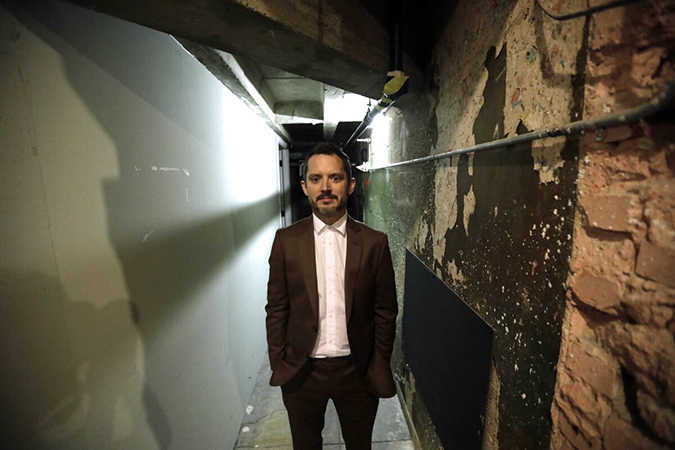
Are you much of an armchair detective? Obviously not to the degree that maybe Walter and Misty are, but do you get sucked into things and go down rabbit holes? Are you into true crime?
I wouldn’t consider myself an armchair detective by any means, but I’m certainly an enthusiast about true crime. I’ve watched a lot of documentaries, listen to a lot of podcasts since before that became a thing. I remember even as a teenager being fascinated by the psychology of serial killers. I still own a Time-Life book on serial killers and their psychology. So crime has always interested me. And with the proliferation of true-crime docs — I remember seeing the West Memphis Three documentaries, and now it sort of permeates our culture. It’s kind of hard to avoid, we’re a little inundated. But it’s still fascinating to me. When I was even a kid in the ’80s, “Unsolved Mysteries” was such a huge thing. That theme song is burned in my memory, both as an attractant and as a detriment. I loved the show, but it also scared the shit out of me, because occasionally there would be cases about kidnapping. As a kid, when your notion of safety is broken by the idea of something that could happen to you, it’s such an arresting moment.
It’s funny thinking about it now, but it’s been a part of my life forever. Like everyone, I feel like “Serial” and the Adnan Syed case really captured my imagination just like everyone else in that it was this case of constantly oscillating between believing and disbelieving the narrative, whether he was guilty or innocent. I engaged in multiple conversations about the ins and outs of that case in a detailed way. But I don’t think it’s ever extended beyond just listening or watching and being interested.
Most of your scenes are with Christina Ricci, whom you’ve worked with before on “The Ice Storm.” What do you remember about your time with her on that film? And how was it to reunite at this stage in your lives and your careers?
I think she’s a year or two older than me, so there wasn’t a whole lot of socialization, but I remember loving working with her. The material and what we were dealing with in that film, there was a seriousness and a darkness and, for us as teens, built into our characters’ experience in that movie was this exploration of sexuality that was super new to me. And that comes with its own awkwardness.
We didn’t know each other after that … so the coming back was a total reintroduction in so many ways. But there was also a familiarity there. And I think because she started as a child, like me, I think there was inherently a kind of an understanding bond of two people who have been doing this for so long and since they were young. And man, her instrument is so finely tuned.
Your character is part of the present-day storyline, but so much of the “Yellowjackets” lore and charm comes from the ’90s backstory that launches things. Are you a nostalgic for that time? What’s a very ’90s memory that stands out for you?
I have a lot of nostalgia for the ’90s. I feel so grateful to be a child of the ’80s and ’90s because those of us who grew up at that time know a time before the internet changed everything, before the spread of information was so instant, and you had to work for things a little bit more. Like, the novelty of like Napster — you had to wait a long time to download a couple of songs. It’s such an age-old thing, right? The innocence of the time before; every generation says that. It’s not new. Everyone feels that way about their prior time. But I think it’s true of the ’90s. There’s so many things I’m nostalgic for. Saturday-night Nickelodeon was a huge thing for me. TGIF with “Family Matters” and “Full House” and all those shows — hugely a part of my life. I miss a lot of the music from the ’90s. It was a pretty exciting era of innovation and sounds you’d never heard. Hearing Björk for the first time, or Aphex Twin.
Music obviously plays such a key role in the show. What’s a song you’d suggest for the show?
Well, they already did it. In the first episode, they played one of my favorite Smashing Pumpkins songs, “Drown.” It’s such a great song. It was on the “Singles” [Cameron Crowe film] soundtrack initially back in 1992, but that’s one of my favorite Smashing Pumpkins songs. So that being included was amazing. All of the ’90s needle drops are pretty awesome.
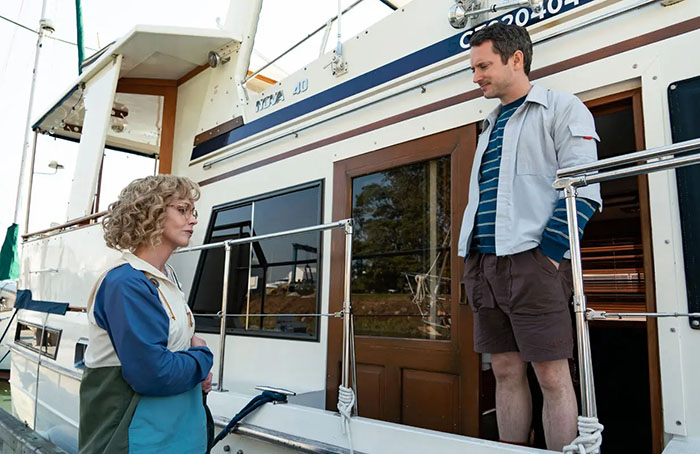
You were in so many projects that defined childhood for a generation — “The War,” “The Good Son,” “Radio Flyer” and a couple of Paula Abdul music videos, to name just a few of them. Did you feel ambitious as a kid?
No, not at all. I couldn’t have had any sense of awareness of a career or even how to have ambition. Certainly, prior to being a teenager, I think it was just … I loved what I was doing, and loved working on movies and wanted to continue to challenge myself and work in different kinds of films. But that was sort of it. That’s where it ended.
It wasn’t until I was sort of older that I could have, I don’t know, a fuller view of ultimately where I could go as a creative person in film and TV. As a kid, the only thing I could be aware of were sort of minor things, like the notion of the subversion of Macaulay Culkin’s image in “The Good Son” — that was not lost on me.
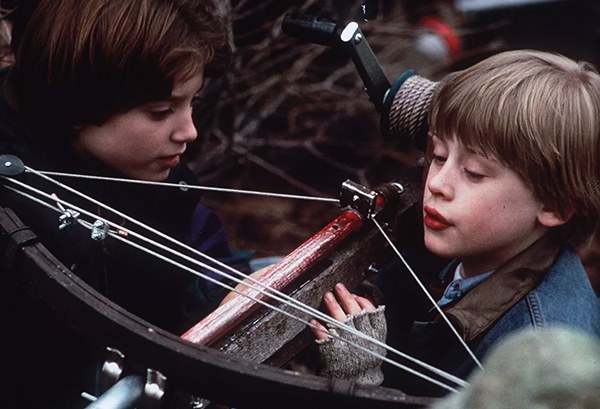
“The Good Son” was such a formative movie for me growing up. The fear I felt watching it was so intense and unexpected as a child. What do you remember even being told about it? And learning that you’re going to be starring opposite the most famous child actor of the time?
I was aware of every aspect of it. The fact that it was essentially a horror movie with Macaulay Culkin subverting his reputation or image as this sort of fun everychild for America and turning into this kind of monster — that was thrilling. I knew exactly what that was then, and I thought that was awesome. Prior to that, I hadn’t read or been given an opportunity to work on anything that was even close to the horror genre. I had grown up, much to my mother’s chagrin, watching horror movies with my brother when I was like 5 or 6. And to be able to engage with something that was kind of adjacent to the horror genre was really awesome. It was a very different kind of movie than anything. The idea of us hanging off of a cliff at the end, like all of that sounded awesome to me.
That cliff scene — forever imprinted in my brain. I would have been absolutely terrified.
It was both thrilling and terrifying. Most of the movie was shot in Massachusetts, outside of Rockport, but that sequence was shot on a cliff over Lake Superior in Duluth, Minn., in January and subzero temperatures. We were really hanging off of a cliff, harnessed in a safety wire. When they would drop us, I would fall, there would be a drop that I would feel. So that feels, in that moment, very real.
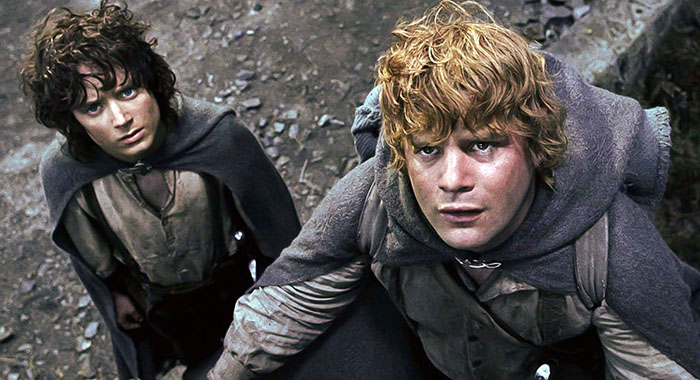
Before I let you go, you know, I have to ask some questions related to “Lord of the Rings.” You’ve seen a few episodes of Amazon’s “Lord of the Rings: The Rings of Power” — what struck you about their interpretation of that world? And how are you feeling about reports that Warner Bros. is looking to expand the franchise with some new movies?
I was really impressed with what they did on “Rings of Power.” The lovely thing about that show, in terms of its timeline, is it’s thousands of years prior to the events in “Lord of the Rings,” so it could feel different while feeling adjacent to the world that had been crafted by Peter [Jackson] and everyone. It’s probably very freeing to them, because they didn’t have to adhere to the aesthetic strictly, but it was very much inspired by all of what came before. … It felt like Middle-earth. To see the harfoots as these early hobbits was really cool. To see a young Galadriel as this kind of warrior was rad. I didn’t finish the season, so I need to go back and finish it, but I was definitely impressed with what they were doing.
And then as far as what Warner Bros. is embarking on, it’s unclear what that’s going to be and how it will manifest. I’m as curious as anyone else, and as excited as anyone else. It’s really interesting, the world we live in now, where we’re sort of post-sequel. We’re in the world of universes now. … Middle-earth is massive — the storytelling, the characters and the breadth of time that Tolkien crafted is massive. So it’ll just be interesting to see where they go with it, what they focus on. It’s not going to be more “Lord of the Rings” films because I think that story has been told. There’s certainly appendices. There are potentially things within the context of that — like Tom Bombadil was never filmed, it was never included. So you could do offshoots within the “Lord of the Rings” book that weren’t expressed. I think folks are gonna want there to be some degree of a signoff from Peter, Fran [Walsh] and Philippa [Boyens]. And they’re being consulted.
And you being in New Zealand has nothing to do with it.
I’m here working on a movie called “Bookworm” with Ant Timpson; we made a movie called “Come to Daddy” a few years ago. This is a comedy in the New Zealand wilderness with a father and daughter. It’s pretty hilarious and fun. And we are in the South Island, and we’ll be mostly in the wilds of New Zealand for a couple of months. I was thrilled to be back here. I’ve missed it so much.
I hope there’s no cannibalism involved.
No, there’s no cannibalism.